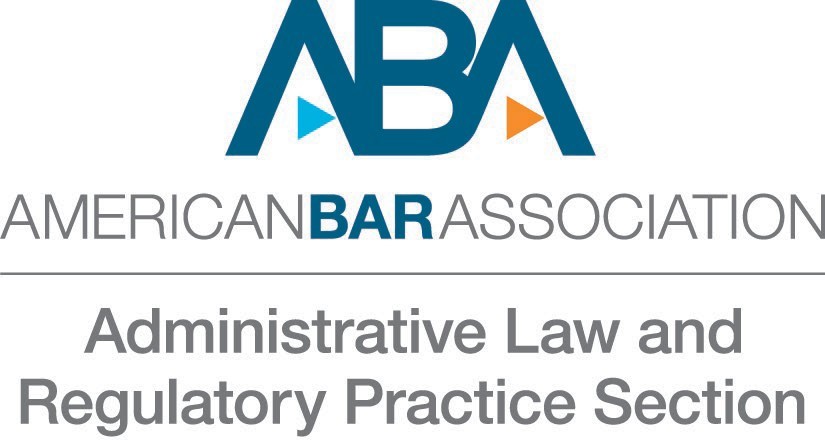Registration Open: Annual ABA Administrative Law Conference, November 19-20 (virtual)

As chair of the ABA’s Section of Administrative Law and Regulatory Practice, I am honored to invite you to attend the ABA’s 2020 Administrative Law Conference, which will take place virtually on Thursday and Friday, November 19-20, 2020. You can register for the full two-day program here (or Thursday only here, or Friday only here). I’ve included the current draft of the program schedule at the end of this post, and the program brochure is here.
The annual ABA Administrative Law Conference is the Section’s signature event each year, as we bring together hundreds of experts in administrative law and regulatory practice to reflect on developments in the field. This year’s conference will be extraordinary. And that is because this year has been an extraordinary one when it comes to administrative law. The U.S. Supreme Court and the lower courts have issued a number of landmark decisions—dealing with, among many other things, the constitutionality of independent agencies and agency adjudicators, the legality of various headline-grabbing executive and regulatory actions, and the scope of Congress’s oversight authority. Congress has been busy exercising its oversight powers—even holding an impeachment trial—as well as delegating authority to federal agencies to respond to the current epidemic. The Executive Branch continues to regulate. But it has also sought to change the way it regulates when, for instance, it comes to the use of agency guidance and enforcement discretion and the role of the White House in reviewing proposed regulatory actions. Similar regulatory developments have taken place at the state and local levels.
The world has also had a profound impact on administrative law and regulatory practice. COVID-19 has brought unprecedented challenges for regulators and those they regulate. Practitioners, scholars, and students of administrative law have looked inward to examine how our country’s history of slavery and racism affects administrative governance today. After this writing but before the Conference begins, we will also have had a presidential election that will—as presidential elections usually do—likely shape the future of the regulatory state in fundamental ways.
It is against this backdrop that we gather again this year for the ABA’s annual Administrative Law Conference. In putting together the program, we have had to respond to these unusual times. For the first (and hopefully last) time ever, the Conference will be completely virtual. Like prior years, you can earn up to 12.5 hours of CLE credit across eight live panels. But unlike prior years, you will be able to access the online recordings for all of the more than twenty panels after the live program concludes (and due to reduced costs, we’ve been able to cut the registration fee by a third from last year).
We have a terrific program this year. In addition to our signature Developments in Administrative Law Program on Friday morning, we have nearly a dozen panels that address the various hot topics highlighted above, with a particular focus on the effects of COVID-19 and the presidential election on administrative law and regulatory practice. On Thursday, we have created a special “Administrative Law 101” track for younger lawyers and law students (and lawyers looking for a refresher) to be introduced to the fundamentals of agency adjudication, rulemaking, judicial review, and statutory interpretation. Our plenary lunchtime session on Thursday will explore various aspects of racism in administrative law, and our plenary lunchtime session on Friday will present the Section’s annual awards for scholarship and public service.
I want to thank the Conference co-chairs, Andrew Emery and Susan Prosnitz, for all of their work in putting this fabulous program together. The indispensable Anne Kiefer, Section Director, makes the whole thing go, handling the thousands of day-to-day details. And we are most grateful for the crucial financial support provided by our generous sponsors, which will be featured prominently in our online and written materials and during the live event. Speaking of which, if your organization may be interested in being a sponsor, please drop me a line (walker.1432@osu.edu).
We are proud of the tremendously diverse group of lawyers from government, private practice, and the academy that make up our Section. We enjoy the job we do wrestling with important questions, sharing information and insight, and spending time with the many friends we have made in the process. It makes membership in the Section quite rewarding. If you are not already a member of the Section, we hope you will join us.
Current Conference Schedule
Wednesday, November 18, 2020
12:00 pm – 1:30 pm ET
- Recognizing and Addressing Racism in Administrative Law
Thursday November 19, 2020
8:30 am – 10:00 am ET
- Regulatory Response to COVID
- The Trump Administration’s Increasing Use of Emergency and Extraordinary Review at the Supreme Court: Feature or Bug?
- Rulemaking 101
10:30 am – 12:00 pm ET
- Agency Adjudication During the COVID Pandemic and Beyond
- Mass, Bot Fake Comments
- Administrative Record 101: A Litigator’s Guide to Understanding, Compiling, and Using an Administrative Record in an Era of Increasing Uncertainty
Noon – 1:00 pm ET
- Annual Awards Program in Scholarship and Public Service
- Administrative Law Job Opportunities for Young Lawyers
1:00 pm – 2:30 pm ET
- Perspectives on Performance-Based Regulation: Rulemaking, Compliance, and Enforcement
- Addressing the Political Dysfunctions That Threaten the Administrative State
- Statutory Interpretation 101
3:00 pm – 4:30 pm ET
- The Future of Deference in the U.S. Supreme Court
- Prosecutorial Discretion in Enforcement Agencies
- Judicial Review 101
Friday November 20, 2020
8:30 am – 10:15 am ET
- Developments in Administrative Law Part 1
10:30 am – 12:15 pm ET
- Developments in Administrative Law Part 2
12:45 pm – 2:15 pm ET
- Regulations In Transition
- Interim Final Rules
- (Immigration) Arbitrary & Capricious Review
2:45 pm – 4:15 pm ET
- OIRA and Presidential Policy in the Next Presidential Term
- George Washington Law Review Panel
- Ethics Panel



